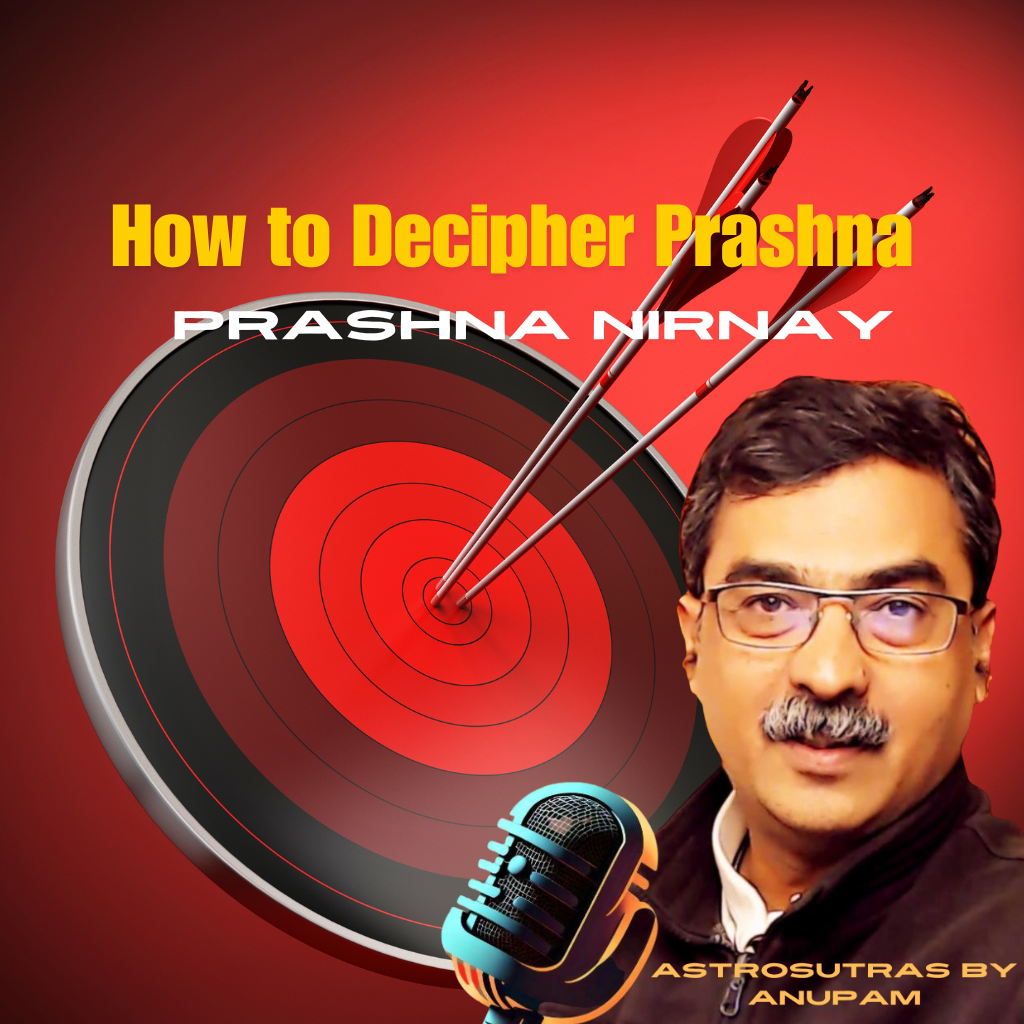Horary Astrology (Prashna Nirnaya) in Vedic Astrology
Introduction
Horary astrology, known as Prashna Nirnaya in Vedic astrology, is a specialized branch where predictions are made based on the moment a question is asked. Unlike natal astrology, which depends on the birth details of a person, horary astrology uses the time, date, and location of the question to construct a chart and provide answers. This method is particularly useful when birth details are unavailable or uncertain.
Principles of Prashna Astrology
Horary astrology is governed by specific principles that help in determining the accuracy of answers. The main components include:
- The Prashna Chart: The horoscope is drawn at the exact time and place where the astrologer receives and understands the question.
- Relevance of the Question: The question must be clear, genuine, and sincerely asked. Frivolous or insincere queries may yield inaccurate results.
- Role of the Ascendant (Lagna): The ascendant in the Prashna chart represents the querent (the person asking the question). The planetary influences on the ascendant and its lord determine the nature of the outcome.
- Moon’s Importance: The Moon is a key determinant in horary astrology. Its position, dignity, aspects, and dispositor reveal the mind’s state and the unfolding of events.
- Planetary Strength: Benefic and malefic influences on the Lagna, the Moon, and the houses relevant to the question determine the outcome.
- Planetary Combinations: The presence of specific planetary yogas and configurations provides additional insights into the answer.
- Dashas and Transits: Though primarily a momentary chart, the running planetary periods and transits may be checked to confirm the prediction.
Types of Questions and House Significations
Each question falls under a particular house in astrology. Some common areas and their significations are:
- 1st House: General well-being, self-related questions.
- 2nd House: Wealth, possessions, family matters.
- 3rd House: Siblings, communication, short journeys.
- 4th House: Property, home, mother, peace of mind.
- 5th House: Children, education, speculation.
- 6th House: Diseases, debts, enemies, legal matters.
- 7th House: Marriage, partnerships, spouse-related queries.
- 8th House: Longevity, secrets, inheritances.
- 9th House: Fortune, spiritual matters, father, higher education.
- 10th House: Career, reputation, social standing.
- 11th House: Gains, friendships, aspirations.
- 12th House: Losses, expenses, foreign travel, hospitalization.
Special Techniques in Prashna Astrology
Several unique methods are employed in Prashna astrology:
- Arudha Prashna: Analyzing the first letter or sound uttered by the querent at the time of asking the question.
- Nimitta (Omens): Observing external signs, behaviors, and natural occurrences to confirm the answer.
- Chakra Systems: Using tools like Koorma Chakra and Panchapakshi Shastra for additional insights.
- Drekkana Analysis: Using the D-3 divisional chart to gain more details about the nature of the query.
- Navamsha Verification: Checking the D-9 divisional chart for deeper clarifications.
Timing Events in Prashna Astrology
Predicting the timing of events is crucial in Prashna Nirnaya. Some common methods include:
- Transit Analysis: Examining when key planets transit favorable or unfavorable houses.
- Movable, Fixed, and Dual Signs: If the ascendant or Moon is in a movable sign, results are quicker; in fixed signs, results are delayed; and in dual signs, events happen gradually.
- Dasha and Antardasha: Checking planetary periods for event timing.
- Horary Numbers (Prashna Sankhya): Some astrologers use numbers chosen by the querent to determine planetary influences.
Ethics and Accuracy in Prashna Astrology
A Prashna chart should only be cast when the question is serious and arises from genuine curiosity or concern. The astrologer must be intuitive, skilled, and ethical while interpreting the chart. Personal biases should not influence the reading.
Prashna Nirnaya in Vedic astrology is a powerful and precise method for answering pressing questions. By analyzing the moment of inquiry and applying astrological techniques, an astrologer can offer valuable insights and guidance. However, the accuracy of predictions relies on a combination of technical expertise, intuition, and sincerity from both the querent and the astrologer.

